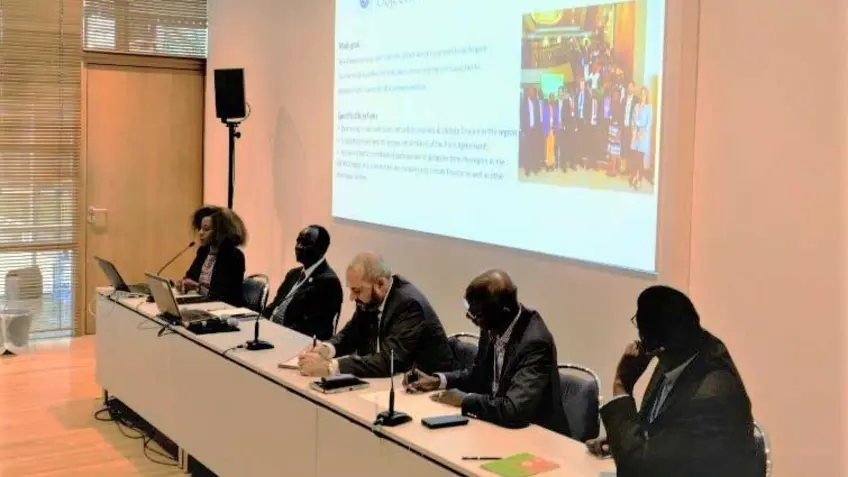Launch of the East African Alliance on Carbon Markets and Climate Finance
Several countries in East Africa refer to the utilization of market mechanisms to facilitate the implementation of their Nationally Determined Contributions (NDCs). Having registered a significant number of CDM activities with high sustainable development impacts, many East African countries are keen to build on this experience for accessing Article 6. This includes working towards a smooth transition of selected CDM projects that meet Article 6 requirements. In acknowledgement of the opportunities that Article 6 entails and the interrelated socio-economic impacts that climate change poses on the region, East African countries view sub-regional cooperation as a potential way for leveraging each other’s strengths on carbon market approaches and climate finance.
Supported by the GIZ Global Carbon Market Project in East Africa on behalf of the German Federal Ministry for Environment, Nature Conservation and Nuclear Safety (BMU) in cooperation with the UNFCCC Regional Collaboration Center Kampala, all countries in the East African Community Region and Ethiopia established the East African Alliance on Carbon Markets and Climate Finance.
The Alliance was officially launched during a side event of the 50th UNFCCC Subsidiary Bodies sessions (June 2019). The Alliance National Focal Points, who are appointed by the member countries of the Alliance, endorsed the formal establishment of the Alliance and encouraged other countries in the extended region to seek membership. They further highlighted the importance of a common East African vision with regards to carbon markets and Article 6 as well as climate finance. This is also echoed in the specific objectives of the East African Alliance, which are:
- Promoting a common vision on carbon markets and climate finance in the region;
- Fostering an active and better coordinated participation of delegates from the region in the UNFCCC negotiations on market mechanisms and climate finance as well as other international fora;
- Supporting readiness to implement Article 6 of the Paris Agreement.
Inspired by the West African Alliance on Carbon Markets and Climate Finance, the secretariat of the Alliance will be anchored in a local or regional institution within East Africa to provide stability and continuity. The secretariat will comprise of a dedicated technical advisor in charge of coordination of its activities. During the transition period of identifying a suitable secretariat, UNFCCC RCC Kampala and GIZ Uganda are serving this role in close coordination with member countries.
Through its established network of Alliance National Focal Points, countries are also considering how the Alliance can support aspects of Article 6 through the NDC Partnership and country specific NDC Partnership Plans. The NDC Partnership is a global collation of countries and institutions working to mobilize support to fast track NDC implementation. Through the NDC Partnership, member countries are developing NDC Partnership Plans which outline common objectives and outputs, set by the government to achieve country NDC goals. East African countries like Kenya and Uganda were some of the first member countries to finalize and approve Partnership Plans. The primary function of Partnership Plans is to ease planning, coordination and tracking the progress of NDC implementation, following a whole-of society approach. Against this backdrop, the Alliance has identified several activities aimed at supporting the member states, such as:
- The calculation of the standardized baseline for the Grid Emission Factor (GEF) for the Republic of Kenya;
- An upcoming training for East African negotiators on market mechanisms and Article 6 PA, which aims at preparing delegates for upcoming climate change negotiations during COP25 in Chile;
- A regional private sector dialogue, which aims to increase the knowledge base on carbon markets in the transition from the CDM to the Article 6 of the Paris Agreement amongst the private sector.
Several additional activities are currently in the pipeline and are being discussed with the member countries.
For more information please contact:
- Lydia Ondraczek, German Federal Ministry for Environment, Nature Conservation and Nuclear Safety, Lydia.Ondraczek.Extern@bmu.bund.de;
- The UNFCCC Regional Collaboration Center Kampala, RCCKampala@unfccc.int;
- GIZ Uganda, Sven Egbers, Head of Global Carbon Market Project in East Africa, sven.egbers@giz.de.
